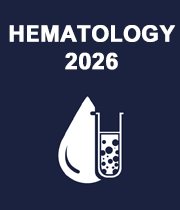Hematological Abnormalities in COVID-19
COVID-19 (SARS-CoV-2) infection has been taking on pandemic dimensions. Preventive infection measures, as well as epidemiological, pathophysiological, diagnostic, and treatment expertise, are desperately needed for this virus. Advances in diagnostic tests, whether for antibody detection through "fast" tests or for detecting the presence of the virus (using the technique of RT-PCR of respiratory samples from affected patients), are critical because they aid in epidemiology, case tracking, and outbreak containment, as well as earlier disease diagnosis, which leads to a better outcome, especially in severe cases. Lymphocytopenia, thrombocytopenia, and increased D-dimer levels are all common haematological anomalies in COVID-19. These changes are more widespread and evident in patients with severe COVID-19 disease, suggesting that they could be used as a biomarker for those who require hospitalisation and intensive care unit care. Early in the course of COVID-19 infection, subtle haematological alterations may develop; increasing disease is associated with considerable haematological abnormalities that may guide the therapeutic plan and predict patient fate.



Title : Acute intermittent porphyria: A neurological dilemma obscured by ubiquitous fgastrointestinal presentation
Mayank Anand Singh, Mimer Medical College, India
Title : Comprehensive symptom management and supportive nursing care in a preterm toddler undergoing HSCT for pyruvate kinase deficiency
Tran Thi Dung, Vinmec International Hospital, Vietnam